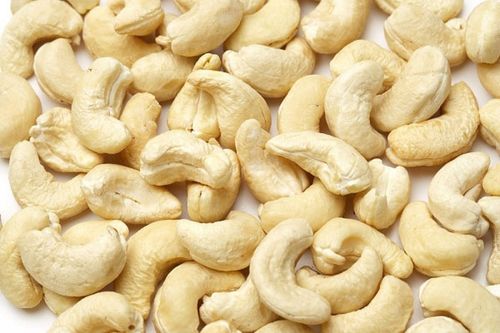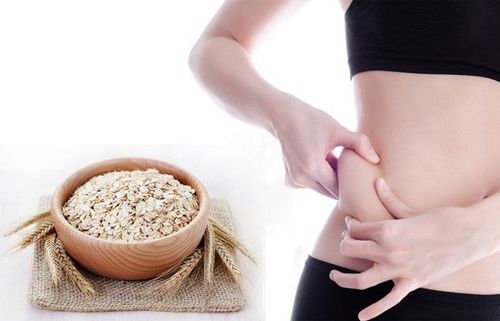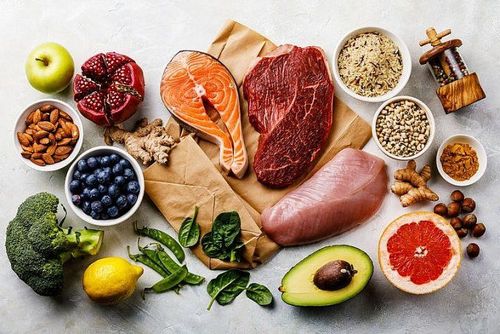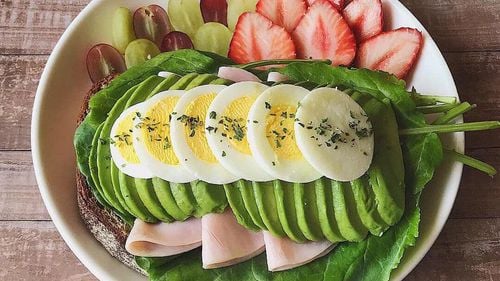This is an automatically translated article.
The “eat clean” model focuses on using fresh foods. This activity can easily be done however some general guidelines need to be followed.
1. What is the eat clean diet?
Eat clean uses foods as close to their natural state to provide maximum nutritional benefits. Choosing good quality and sustainable food is also part of “eat clean”.
The basic principles of eat clean will encourage you to consume more whole foods such as: fruits, vegetables, lean protein, whole grains and healthy fats and at the same time, limit fast foods processed foods, sweets and other packaged foods.
An example of a meal with all of these foods would be a spinach salad with grilled chicken, quinoa, avocado, walnuts, and apple slices.
2. More tips to “eat clean”
Limit packaged foods, or processed products with long lists of ingredients, most of which are unnatural. The ingredients listed on food labels should mostly be foods you can recognize, such as whole-grain oats, dried apples, flaxseeds, and cinnamon. Limit ingredients that you can't identify, such as: carnauba wax, soy lecithin, and artificial flavors. Cut back on foods with added salt, sugar, or fat. Avoid foods that are significantly altered from their natural form, such as: apple juice instead of whole apples, chicken nuggets versus raw chicken breast, or french fries instead of raw vegetables.
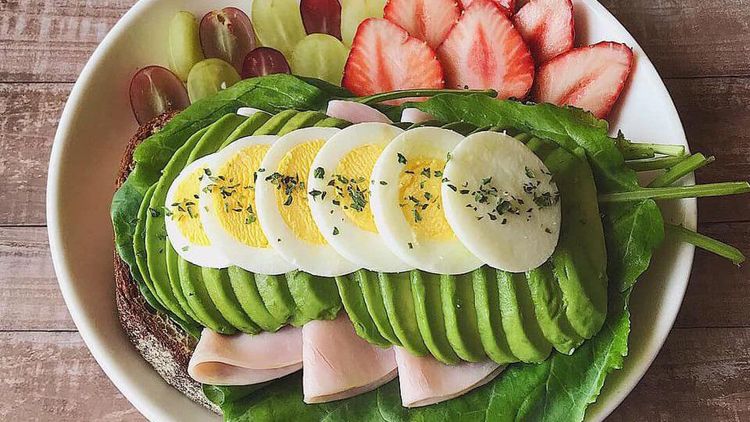
Tránh các loại thực phẩm bị thay đổi cấu trúc nên ăn thực phẩm tự nhiên
Sometimes processing can be a good thing for food, such as pasteurization to make eggs and dairy products safe to consume. In addition, frozen fruits and vegetables also do because they are minimally processed and can sometimes contain more nutrients than fresh varieties because they are standard frozen. Prepare and eat more food when eating at home. Start with simple meals to get you into the habit, such as: Greek yogurt and fresh berries for breakfast, or whole-wheat roast turkey and avocado topped with red pepper slices for lunch.
3. Simple ways to start “eat clean” mode
3.1. Eat more vegetables and fruits Vegetables and fruits are both very healthy foods. They're packed with fiber, vitamins, minerals, and plant compounds that help fight inflammation and protect your cells from damage.
In fact, many large observational studies have linked a high intake of fruits and vegetables with a reduced risk of diseases such as cancer and heart-related disease.
In addition, fresh vegetables and fruits are ideal for “eat clean” practices, as most can be eaten raw immediately after being picked and washed. This can be considered a "eat clean" weight loss diet.
Choosing organic produce can help you do your best “eat clean” by reducing your exposure to pesticides and potentially boosting your health.
3 . 2. Limit processed foods Processed foods are in direct contrast to a healthy and “eat clean” lifestyle, as they have been modified from their natural state.
Most processed food products have lost some fiber and nutrients but have added sugar, chemicals or other ingredients. What's more, processed food products have been linked to inflammation and an increased risk of heart disease.
Even if unhealthy ingredients are not added to these food products, they still lack many of the benefits that whole foods offer.

Hạn chế thực phẩm chế biến sẵn vì chúng đã được biến đổi so với trạng thái tự nhiên.
3.3. Read food product labels Although “eat clean” is based on using raw foods, it can include some packaged foods, such as packaged vegetables, nuts, and meats.
However, it's important that you read product labels to make sure there aren't any preservatives, added sugars, or unhealthy fats.
3.4. Stop Eating Refined Carbs Refined carbs include processed foods that are easy to overeat but provide little nutritional value. Research has linked refined carb consumption with inflammation, insulin resistance, fatty liver, and obesity.
In contrast, whole grains, which provide more nutrients and fiber, may reduce inflammation and promote better gut health.
In a study conducted in 2,834 people, those who consumed mainly whole grains were less likely to have belly fat than those who focused on refined grains.
If you eat grains, choose the least processed variety, such as sprouted grain bread and steel-cut oats. Also, limit processed grains, white bread, and other refined carbs.
3.5. Avoid vegetable oils Vegetable oils and margarine do not meet the eat clean criteria. Animal studies and isolated cells show that it increases inflammation, potentially increasing the risk of weight gain and heart disease. Although artificial trans fats have been banned in the United States and In other countries, some margarines and margarines may still contain small amounts. Although eat clean does not recommend using all vegetable oils, it is important to eat a small amount. moderate healthy fats. These include fatty fish, nuts and avocados.
3.6. Stay away from sugar or don't add sugar to foods. Don't add sugar to your diet if you're trying to eat clean. However, added sugars are very common and are even found in foods that don't have a particularly sweet taste, like sauces and condiments.
Table sugar and corn syrup are both high in fructose. Studies conducted show that this compound may play a role in obesity, diabetes, fatty liver and cancer, among other health problems.
If you have diabetes, metabolic syndrome or similar health problems, it's best to avoid all forms of concentrated sugar, including those of natural origin.
To do eat clean, try to consume food in its natural state, without sugar. Plus, you should learn how to appreciate the sweetness of fruit and the subtle flavors of nuts and other whole foods.
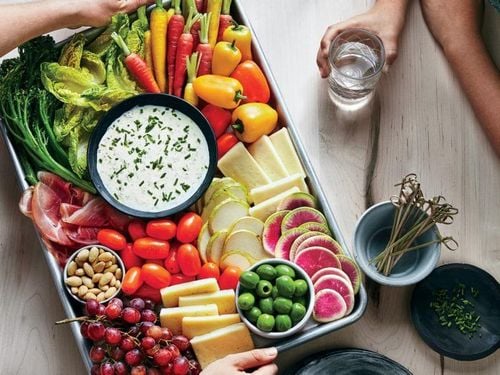
Thực hiện eat clean bạn nên tiêu thụ thực phẩm ở trạng thái tự nhiên như trái cây
However, regular alcohol consumption has been shown to promote inflammation and may contribute to a number of medical problems, such as: liver disease, digestive disorders and excess belly fat.
3.8. Substituting Vegetables in Recipes You can boost your health by replacing refined grains with vegetables in everyday recipes.
3.9. Avoid packaged snacks You should stay away from packaged snack foods if you are trying to "eat clean".
Crackers, muffins ... often contain refined grains, sugar, vegetable oils and other unhealthy ingredients.
3.10. Beverages Drinking water has the most natural and healthy ingredients. Ingredients do not contain additives, sugar, artificial sweeteners or other suspicious ingredients. Accordingly, this is the cleanest beverage you can drink.
Water can keep you hydrated and can also help you achieve a healthy weight. This could be the eat clean diet to gain weight.
On the contrary, sugary drinks are often associated with diabetes, obesity... Moreover, fruit juices with high sugar content can also cause many of the same problems.
Unsweetened coffee and tea are good options and offer some health benefits, but people who are sensitive to caffeine may need to consume in moderation.
Please dial HOTLINE for more information or register for an appointment HERE. Download MyVinmec app to make appointments faster and to manage your bookings easily.
References: mayoclinic.org, healthline.com, webmd.com




